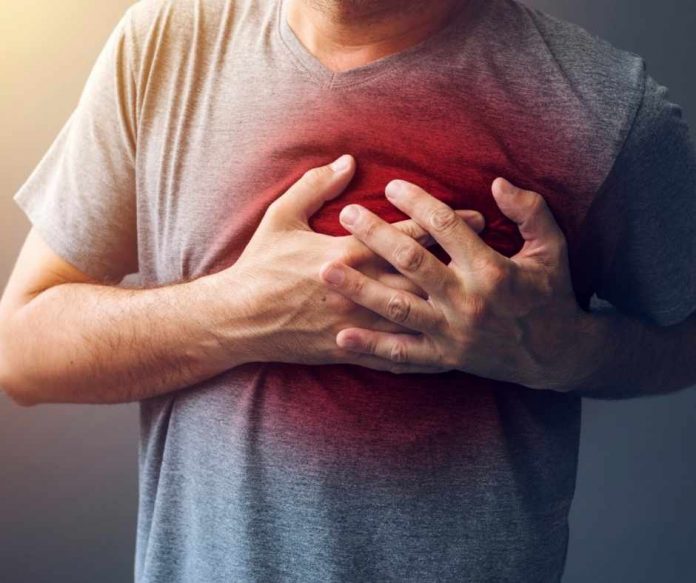What is heartburn?
Heartburn is a burning sensation in your chest, behind your breastbone. It occurs when stomach acid travels back up your esophagus — the tube that carries food from your mouth to your stomach. You may also experience a bitter taste in your throat or mouth. The symptoms of heartburn may get worse after you eat or when you’re lying down.
In general, you can successfully treat the symptoms of heartburn at home. If frequent heartburn makes it difficult to eat or swallow, however, your symptoms may be a sign of a more serious medical condition.
What does heartburn feel like?
Heartburn feels like an uncomfortable or burning pain in the middle of your chest.
You may also experience:
a burning sensation in your throat
pressure or pain behind your breastbone
difficulty swallowing
worsening pain after lying down or bending over
an acidic, sour, or bitter taste in your mouth
coughing or hoarseness
How long does heartburn last?
Heartburn can affect people differently. In general, heartburn symptoms begin shortly after eating and can last anywhere from a few minutes to a couple of hours, or even longer.
How long you experience symptoms depends on the underlying cause. It also depends on what you do at the first sign of symptoms. For example, sometimes heartburn symptoms last until your body digests the triggering food. Other times, it goes away if you stand up instead of lying down after eating.
If you take OTC antacids or prescription medications as part of a treatment plan, you may experience a shorter duration or fewer heartburn symptoms
What causes heartburn?
Source typically occurs when contents from the stomach back up into the esophagus. The esophagus is a tube that carries food and fluids from the mouth into the stomach.
Your esophagus connects to your stomach at a juncture known as the lower esophageal sphincter. If the lower esophageal sphincter is functioning properly, it closes when food leaves the esophagus and enters the stomach.
In some people, the lower esophageal sphincter doesn’t function properly or it becomes weakened. This leads to contents from the stomach leaking back into the esophagus. Stomach acids can irritate the esophagus and cause symptoms of heartburn. This condition is known as reflux.
Certain conditions and other factors may make it more likely for you to experience heartburn.
Risk factors include:
Hiatal hernia. A hiatal hernia occurs when the upper part of your stomach penetrates through the diaphragm, usually by way of a weakness or tear.
Pregnancy. Heartburn is common during pregnancy, especially during the third trimester, according to a 2015 systematic .
Smoking: Smoking is weakly associated with an increased chance of developing gastroesophageal reflux disease (GERD). It is worth noting because people who quit or decreased tobacco smoking were three times more likely to have a reduction of heartburn symptoms, according to a 2018 .
Being overweight or having obesity. Obesity is a major contributing risk factor to GERD, with heartburn and regurgitation being the typical way this condition manifests, according to a 2014 .
Taking certain medications. Some medications, such as aspirin, ibuprofen, sedatives, and blood pressure medications, can increase your risk of heartburn, according to the NIDDK
If you have heartburn, you may find that certain foods and drinks can trigger your symptoms. These may include:
carbonated drinks
chocolate
citrus fruits
tomatoes and tomato-based products
peppermint
fried foods
high fat foods
spicy foods
alcohol
Other triggers that can contribute to heartburn include:
eating a large meal
lying down immediately after eating
wearing tight clothes
When should I see my doctor about heartburn?
Many people occasionally experience heartburn. However, you should contact your doctor if you experience heartburn more than twice per week or if you have heartburn that does not improve with treatment. This could be a sign of a more serious condition.
Heartburn often occurs alongside other gastrointestinal conditions, such as ulcers, which are sores in the lining of the esophagus and stomach, or GERD, according to the NIDDK. Contact your doctor if you have heartburn and develop:
difficulty swallowing
pain with swallowing
dark, tarry, or bloody stools
shortness of breath
pain that radiates from your back to your shoulder
dizziness
lightheadedness
sweating while having chest pain
Heartburn is not associated with a heart attack. However, people who have heartburn may believe they’re having a heart attack because the symptoms can be very similar.
According to the Centers for Disease Control and Prevention (CDC)Trusted Source, symptoms of a heart attack include:
severe or crushing chest pain or discomfort
difficulty breathing
feeling weak, lightheaded, or faint
jaw pain
arm pain
Call 911 immediately if you experience symptoms of a heart attack.





























